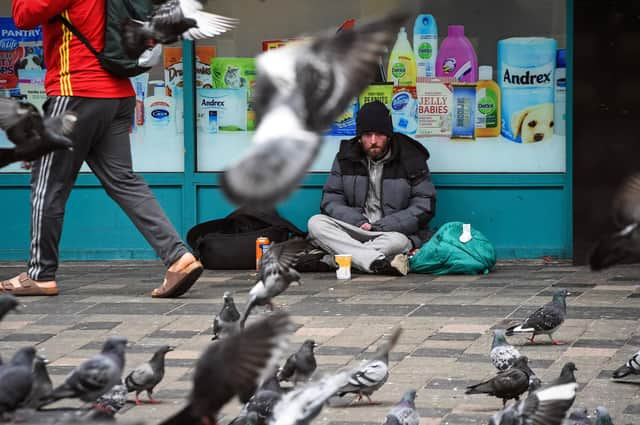We can’t go back to the way things were - Karyn McCluskey


It’s a miracle of cooperation, of a shared interest and outcome. This pooling of academic and practical knowledge has taken us to the precipice of some kind of freedom.
And my, do we need it, that hope, that promise of freedom to hug those we love, to get into our care homes to embrace people who’ve been deprived of family contact.
Advertisement
Hide AdAdvertisement
Hide AdI see the stress of people worn out, needing decompression, working huge hours, unable to perform their roles in any recognisable way, often enclosed in PPE trying to deliver care under the most difficult circumstances.
People just want things to be normal, to be back how they were, and I absolutely get it. I dream of spring days, seeing friends and family and I wonder what I would sacrifice to get it. But we can’t go back to the way things were.
We’ve seen the disparity between people get even wider. We need to house the homeless, ensure hungry kids have something to eat, help parents who are struggling, provide flexible workplaces, reduce our prison population, provide recovery services that meet the need of those in addiction, rage at the gig economy and insist "it’s not right, it must change”.
We have made some progress, but we haven’t travelled far enough as there is still a gravitational pull taking us back to how it was. All huge objects have gravity, and the bigger they are, the more gravitational pull they produce.
Systems, have a gravitational pull because they are large, everybody knows their part in it – and the temptation is to allow ourselves to fall back to earth and go back to doing what we always have done, because it’s normal.
The justice system exerts a huge pull – if it was a celestial body it would be the sun. It pulls people in; processes, form fills, and passes them from organisation to organisation until it gets an output. It’s magnificent in many ways but is in need of huge change.
Leaders across the justice system all recognise it needs to be transformed, and it has required different forms of investment for years. We recognise it needs to focus more on outcomes and less on outputs – we know it’s the right direction of travel. Substantial change has happened in the system during the pandemic but we will need to transform it further.
The phrase “Build Back Better” did not originally come from politics, it’s was used after the disasters of the 2004 Indian Ocean tsunami. It focused on supporting communities helping them drive their own recovery, at the same time as revitalising livelihoods, economies and the environment. Seems pretty sound to me.
Advertisement
Hide AdAdvertisement
Hide AdIt would be great to prescribe everyone two weeks’ holiday, no emails or meetings, to recover and decompress – so they came back ready to tackle the challenge of transformation.
But we can’t – and it’s a hard task. But we strive to break free from our impulse to regress to the norm, the future if we want it can be brighter and better. The view will be worth the climb.
Karyn McCluskey is chief executive of Community Justice Scotland
Comments
Want to join the conversation? Please or to comment on this article.